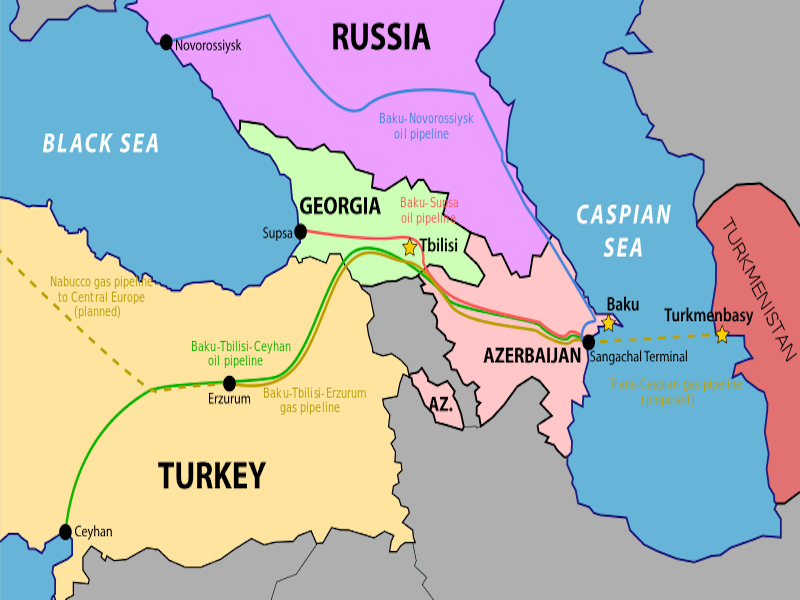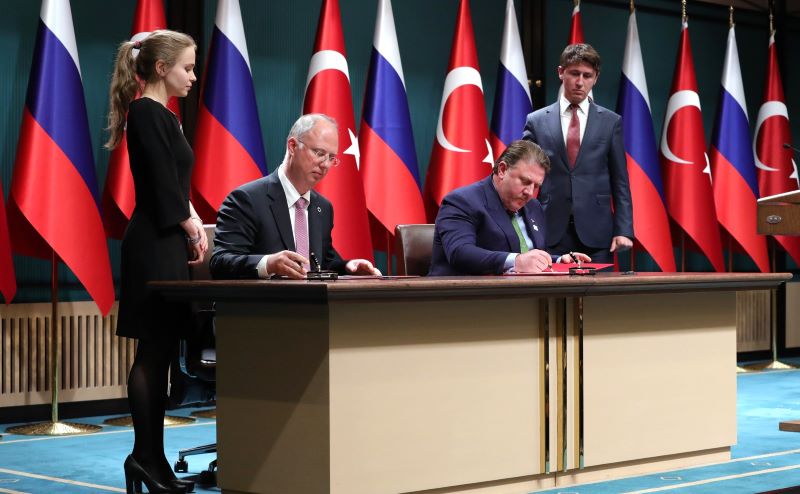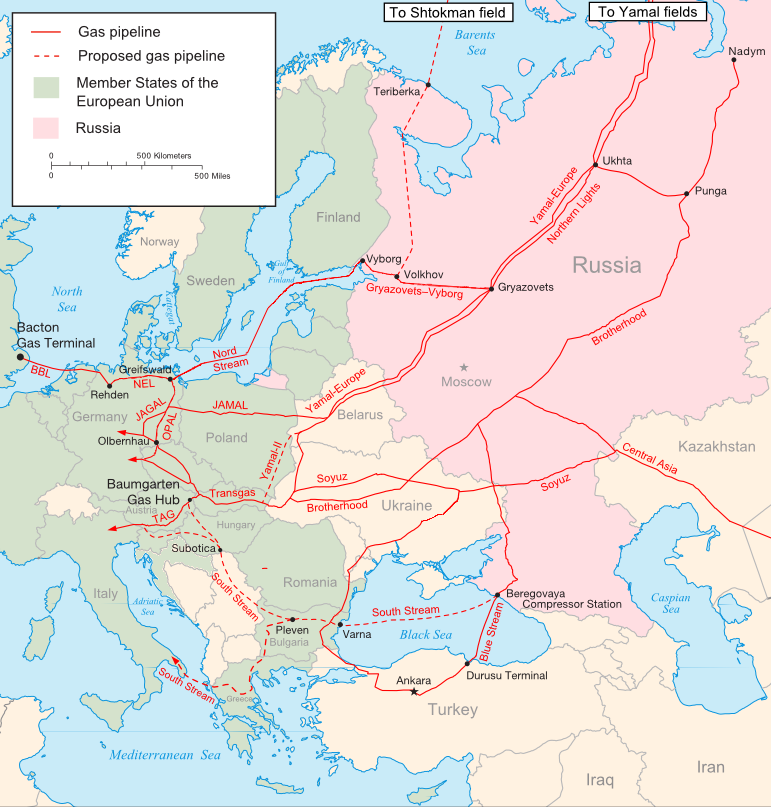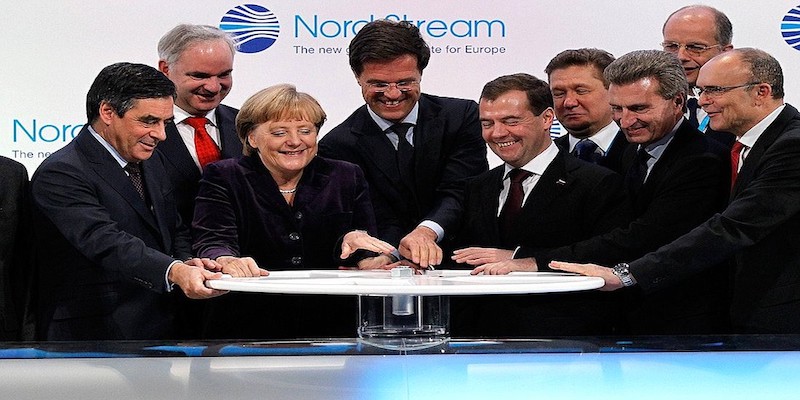Last summer, before the Second Karabakh War broke out between Armenia and Azerbaijan in autumn, the Turkish company BOTAS opened a tender to construct a gas pipeline from Igdir into the Azerbaijani exclave of Nakhchivan, which is surrounded by Armenia and Iran but has a short border with Turkey. Nakhchivan has relied principally on gas imports from Iran, and the new pipeline would reduce, indeed eliminate, that dependence. The project, originally agreed in 2010, had been on hold until the two countries agreed in early 2020 to fast-track it. It would carry 500 million cubic metres per year of natural gas.
It was agreed in the ceasefire accord of November 10, 2020, that “Armenia shall guarantee the security of transport connections between the western regions of the Republic of Azerbaijan and the Nakhchivan Autonomous Republic in order to arrange unobstructed movement of persons, vehicles and cargo in both directions.” In addition, “As agreed by the Parties, new transport links shall be built to connect the Nakhchivan Autonomous Republic and the western regions of Azerbaijan.”
A trilateral working group toward this end was established at an inter-ministerial meeting on January 11 of this year, but Armenia has since then suspended its participation in any knock-on discussions. It did so despite the fact that Azerbaijan has been supplying Armenia (although it is not obligated to do so) with gas from Russia through its own national pipeline system, which is more efficient that the Georgian infrastructure.
However, insofar as the more general re-establishment of transportation links is concerned, Armenia continues to insist instead on re-opening a longer and more circuitous railroad route between the two countries that does not go through the Zangezur Corridor. Not only would that route take a longer time for travel, but also it would cost more to reconstruct and refurbish.
A month after the end of the Second Karabakh War, Azerbaijan and Turkey, in the face of Armenian delay and intransigence, had already signed a Memorandum of Understanding (MoU) for the Igdir-Nakhchivan pipeline’s construction. A pipeline through the Corridor would have been in Armenia’s longer-term interests. BOTAS had in fact been exploring this possibility. It would have been possible to create jobs in southern Armenia, which desperately needs economic development, through construction of a processing complex to produce refined products for foreign export. But Yerevan was handicapped by internal political deadlock due to snap elections called after the war. Lacking a full cabinet, including a foreign minister (the ministry’s entire leadership had resigned earlier), the government was unable to take any constructive decisions. And now it may be too late.
BOTAS had been looking for possibilities, following the Second Karabakh War, to build a pipeline directly from the main body of Azerbaijan into Nakhchivan across southern Armenia, since the trilateral ceasefire agreement (negotiated by Russia) provided for such a transport corridor. Such a pipeline, by paving the way for more investments and initiatives, could help to develop the impoverished region of southern Armenia, Syunik province, also known by the historical name of western Zangezur when it was part of an Azerbaijani khanate before the Russian Revolution in 1917.
If constructed, this Igdir-Nakhchivan pipeline would adversely affect any remaining chances for the Trans-Caspian Gas Pipeline (TCGP) to be built, taking away an argument supporting the latter’s construction. The TCGP’s prospects are already precarious following the EU’s adoption of the European Green Deal, which foresees an eventual diminution in consumption of natural gas.
Although it has been planned that gas from the TCGP should run along the established Azerbaijan-Georgia-Turkey route of the South Caucasus Pipeline (SCP), entering the EU’s Southern Gas Corridor (SGC) for transit to Europe, a route across Armenia such as through the Zangezur Corridor has always been preferred, because it is shorter and therefore less expensive. The deadlock around the Karabakh issue, however, has made this impossible for 30 years.
Despite holding a Grant Award from European Commission’s European Commission’s “Climate, Infrastructure and Environment Executive Agency” (CINEA, formerly INEA, the Innovation and Networks Executive Agency) since 2018, the TCGP promoter company appears, for whatever reason, to have made little or no progress on the ground in getting it built. This in fact casts doubt upon whether the project will be qualified for the upcoming List of Projects of Common Interest, particularly in the policy environment of the European Green Deal. General European energy import demand has fallen in the last year and a half as a result of the politically imposed lock-downs, which depress economic activity and economic recovery.
In the event, Azerbaijan’s own off-shore gas could supply Nakhchivan. Baku is currently re-negotiating a supply contract with Ankara for 6.6 billion cubic metres per year for the Turkish domestic market. Turkey has been developing many more sources of natural gas, including but not limited to LNG, than it had in the past; so Nakhchivan’s requirements could easily come out of the SGC from Igdir. It would seem that this is the most probable outcome of the situation as it exists at present.
That would mean, in turn, that chances for the TCGP’s construction will at best remain in limbo. In the longer run, it signifies that any strategic geoeconomic unification of West Central Eurasia and East Central Asia will be less robust. That, in turn, will not be to Europe’s benefit when the current international system enters crisis in the early 2030s and collapses in the mid-2040s.
Image copyright: Baku Pipelines, by Thomas Blomberg via Wikimedia Commons. Licensed under CC BY-SA 3.0
Disclaimer: Any views or opinions expressed in articles are solely those of the authors and do not necessarily represent the views of the NATO Association of Canada.




